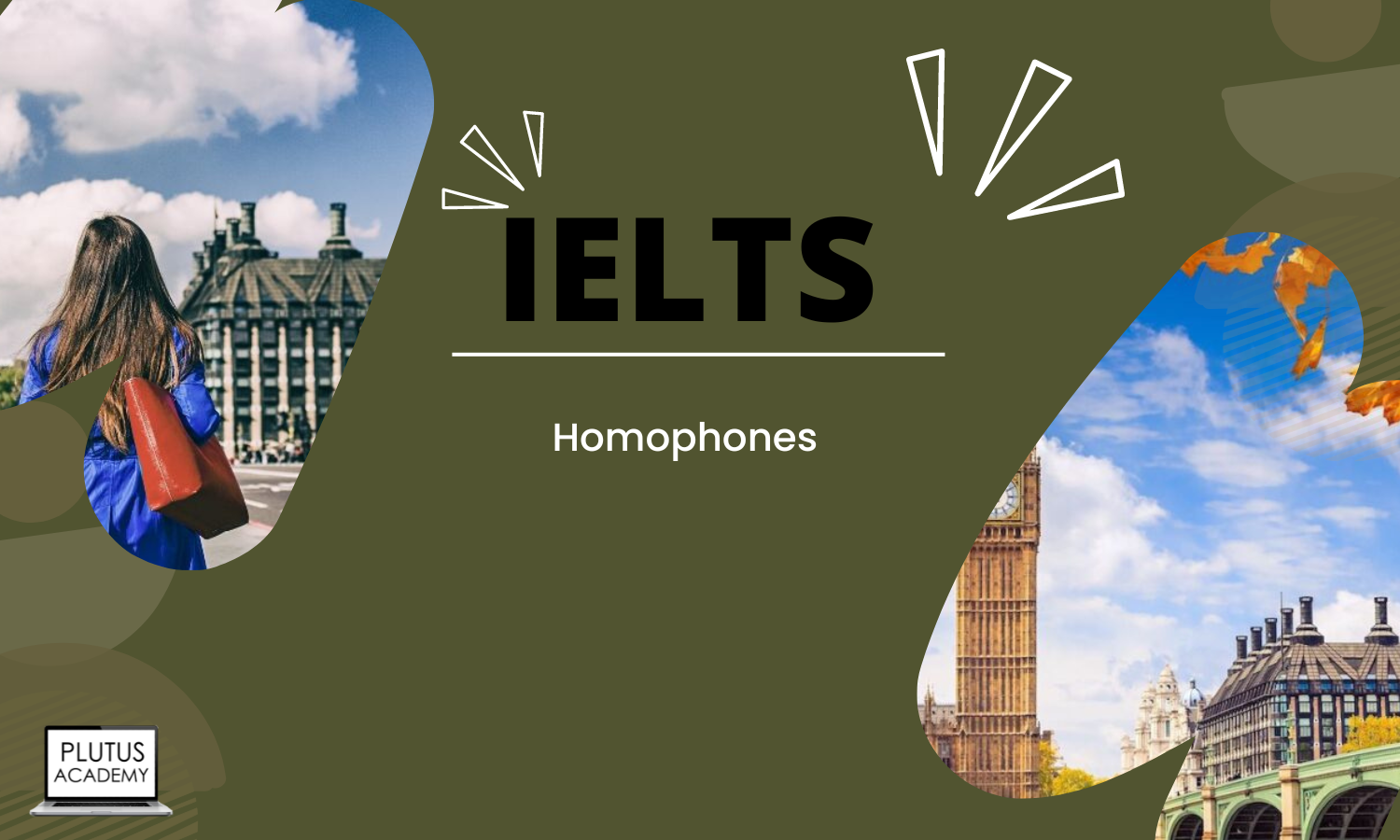
Homophones aka similar sounding words can be very confusing to learn. Which word to use when, how, where and in what situation can be very tricky especially for the ones who’s native language is not easy. Did you notice the grammatical mistake in the sentence above? The word “Who’s” has been used incorrectly. “Whose” is the right option. All these things are very vital to know when you are preparing for the IELTS exam.
In this blog, we will learn about the use of homophones by giving examples of the most confusing homophones so that you do not make the same mistake like others in your IELTS exam. Let’s learn!
Also read: IELTS Listening & Speaking: Grammar, English Intonation, and Effective Communication
What are Homophones?
I know you wanted to know about the most commonly mistaken homophones but in order to not make mistakes in homophones, you should first know what they are. Homophones are similar-sounding words with different meanings. For example: Bear and Bare. Both have the same pronunciation but the meaning of both is different. Bear is an animal, whereas Bare is a verb word meaning “to uncover.”.
Now that you know what we are talking about, let us learn from other’s mistakes i.e. most commonly mistaken homophones.
Most Commonly Mistaken Homophones In IELTS Exam
When you are doing your IELTS preparation there are many hurdles that you will need to cross. One of them is HOMOPHONES! This is a list of the words that are commonly mistaken for another. Make sure you do not make the same mistake.
- Hour/Our – “Hour” is a unit of time, whereas “Our” is a pronoun that shows ownership by the speaker.
- Four/For – “ Four” is the number that comes after three and before five, whereas ”For” is used to indicate purpose or destination.
- Meet/Meat – “Meet” is an action word meaning to come together with someone or something, whereas “Meat” is the flesh of an animal.
- Made/Maid – “Made” is the past tense of the word made, whereas “Maid” is a female servant.
- Peace/Piece – “Peace” is a state of tranquility or quiet, whereas “Piece” is a portion of something.
- Steal/Steel – “Steal” to take something without asking, whereas “Steel” is a strong, hard metal made from iron.
- Waste/Waist – “Waste” is to use something without any purpose, whereas “Waist” is the part of the human body between ribs and hips.
- Weak/Week – “Weak” is not strong or powerful, whereas “Week” is a period of seven days.
- Read/Red – “Read” is a doing word for comprehending that is written, whereas “Red” is a colour.
- Bored/Board – “Bored” is being tired of something, whereas “ Board” is a wood plank.
- Fare/Fair – “Fare” means just, whereas “Fair” means light skin tone.
- Heal/Heel – “Heal” means to recover, whereas “ Heel” is the back part of the foot.
- Eight/Ate – “Eight” is a number that comes in between 7 & 9, whereas “Ate” is the past tense of eat.
- Know/No – “Know” is to have knowledge about, whereas “No” means not.
- Knight/Night – “Knight” is a man who served as a soldier, whereas “Night” is the time between sunset and sunrise.
- Soul/Sole – “Soul” is the emotional or spiritual being of a body, whereas “Sole” is the bottom part of the foot.
- Two/Too/To – “Two” is the number that comes after one and before three. “Too” is also; in addition, whereas “To” is used to indicate direction or purpose.
Also read: Avoid These Common Grammar Mistakes In IELTS!
Confusion
I hope you learnt about homophones and the common mistakes aspirants make in the exam. IELTS is a difficult exam and taking IELTS coaching will help you get the right guidance for the exam. Whenever you are opting for coaching, make sure you choose the best IELTS coaching in India for your IELTS preparation.
Plutus Academy is the best IELTS coaching. It guarantees your band score. Get the top band score with Plutus Academy.

